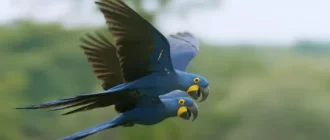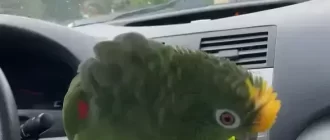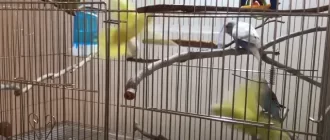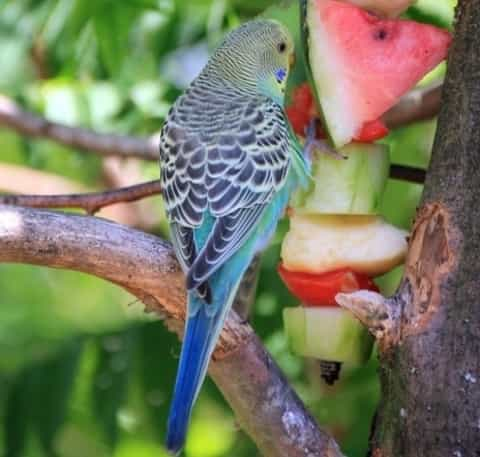As much as we love our pet parrots, it’s important to remember that they can carry diseases that can be transmitted to humans. These diseases range from mild to severe and can cause serious health problems if left untreated. In this blog, we’ll discuss some of the most common parrot diseases that can affect humans and provide tips on how to prevent them from spreading. So whether you’re a new parrot owner or a seasoned bird enthusiast, read on to learn more about these potential health risks and how to keep yourself and your feathered friend safe.
Psittacosis
Psittacosis, also known as parrot fever, is an infectious disease that can be transmitted to humans from infected birds in the parrot family. This flu-like illness or serious pneumonia is most commonly associated with pet birds like parrots and cockatiels, as well as poultry like turkeys and ducks. Chlamydia psittaci, a bacterium, is the cause of this type of lung infection. People can become infected by handling feathers or tissues of infected birds, or even by mouth-to-beak contact (kissing).
Bird Tuberculosis
Bird tuberculosis, also known as avian tuberculosis, is a disease caused by the bacterium Mycobacterium avium. It can be transmitted mainly through direct contact with infected birds or by inhaling the organism from dried feces. This type of tuberculosis is not often seen in birds, but it is still a concern for their owners, as it can be transmitted to humans as well. Symptoms include respiratory infections, swollen lymph nodes, and even death in severe cases. It’s crucial to properly care for and maintain the health of pet birds, including regular check-ups with a veterinarian who specializes in avian medicine. By being aware of potential diseases and taking preventative measures, bird owners can keep themselves and their feathered companions healthy and happy.
Chlamydiosis
Chlamydiosis is a disease caused by Chlamydia psittaci bacteria that can be transmitted to humans through infected parrots or other birds. Infected birds can shed the bacteria in their droppings, feathers, and mucus. Humans can inhale the bacteria-contaminated particles or have direct mouth-to-beak contact when handling infected birds. Chlamydiosis can cause flu-like symptoms such as fever, coughing, and muscle pain. If left untreated, severe cases can lead to pneumonia, and even death. Therefore, it is crucial to be aware of the risks of handling birds and to take necessary precautions such as wearing protective gear, washing hands frequently, and seeking medical attention if experiencing symptoms.
Histoplasmosis
Histoplasmosis is a fungal infection that can be contracted by breathing in spores from contaminated soil or dust. Bird droppings are a common source of this fungus, which means it can also be spread by birds. As mentioned in the previous section, psittacosis is another infectious disease that humans can acquire from birds. Symptoms of histoplasmosis vary depending on the severity of the infection but can include fever, cough, chest pain, and shortness of breath. In rare cases, it can even be fatal. It is important to note that not only those who work with birds or interact with birds frequently are at risk of contracting these diseases. To protect yourself from parrot diseases, it’s recommended to practice good hygiene habits including frequent hand washing, wearing a mask while cleaning bird cages or handling bird droppings, and keeping the living space of birds clean and well-ventilated. By taking these precautions, it’s much less likely to contract harmful diseases from these beautiful creatures.
Cryptococcus
Cryptococcus is a fungal infection that can be contracted by humans from birds, particularly pigeons. In pet birds, Cryptococcosis is not so common but can cause serious health issues such as diarrhea, paralysis, nervous-system signs, and masses with a potential for central nervous system damage. While this disease is not spread directly from person to person or from animals to humans, susceptibility and resistance to it vary greatly in different individuals. Thus, it’s important for pet bird owners to be aware of the potential risks and take precautions, such as good hygiene practices and keeping bird cages clean. In recent years, cases of human cryptococcosis have increased, especially among those with weakened immune systems. Therefore, it’s essential to know how to prevent and protect oneself from various parrot diseases, including Cryptococcus, by learning health tips and seeking proper medical treatment when necessary.
Campylobacteriosis
Campylobacteriosis is another birdborne disease that can be transmitted to humans. It is a food-borne zoonosis that causes gastrointestinal distress, usually through the ingestion of contaminated food and water that has been contaminated by bird feces. Although it is not a common clinical disease in poultry and other birds, many chicken flocks are infected with Campylobacter, and individual birds show no signs of illness. When an infected bird is slaughtered, the bacteria can be transmitted to humans. Laboratory environments have also seen the transmission of Campylobacter to humans. It is essential to practice good hygiene, clean and disinfect bird areas, and take necessary precautions to protect oneself from campylobacteriosis and other bird-transmitted diseases.
Allergic Alveolitus
Allergic alveolitus, also known as hypersensitivity pneumonitis, is a lung disease that can be caused by exposure to bird droppings, feathers, and secretions. Bird fancier’s lung and farmer’s lung are both types of allergic alveolitus that can occur as a result of inhaling these materials. Symptoms may include shortness of breath, coughing, and fever. It is important to note that not all individuals exposed to bird-related allergens will develop allergic alveolitus. However, it is crucial for bird owners and handlers to take precautions to protect themselves from potential exposure. This may include wearing masks while cleaning cages or handling birds, washing hands thoroughly, and using proper ventilation in bird habitats. By taking these steps, individuals can reduce their risk of developing allergic alveolitus and other bird-related illnesses.
How to Protect Yourself from Parrot’s Diseases
To protect oneself from parrot diseases, it is important to practice good hygiene. This can be done by washing hands thoroughly with soap and water after handling birds or their cages. It is also advisable to wear personal protective equipment like gloves and appropriate masks when cleaning cages or handling infected birds. Additionally, it is recommended to keep birds in well-ventilated areas and to clean their living spaces regularly. It is crucial to be knowledgeable about the potential diseases birds can transmit to humans and to seek medical attention if any symptoms are present. By taking these precautions, individuals can minimize the risk of contracting a parrot-borne illness.
1. Keep your feathered friends healthy with proper care
Caring for your bird goes beyond just providing food and water. Regularly clean their cage, aviary, and equipment to prevent the buildup of harmful germs. Also, make sure your bird is getting a balanced diet to boost their immune system.
2. Use personal protective equipment (PPE)
When handling infected birds or cleaning their cages, use gloves and appropriate masks to protect yourself from contracting psittacosis. This is especially important if you already have a weakened immune system, as the disease can be more severe.
3. Follow quarantine protocols
Bringing a new bird into an established flock can introduce diseases, so always quarantine new birds for 3 to 4 weeks or test them clean of disease before introducing them to your existing flock.
4. Educate yourself on psittacosis
Knowing the signs and symptoms of psittacosis can help you identify the disease early on and seek appropriate medical attention. Also, understand how the disease can spread from birds to humans and take necessary precautions to avoid transmission.
5. Wash your hands frequently
To minimize the risk of contracting psittacosis, wash your hands after handling birds, their cages, or any equipment. This will help prevent the spread of germs and keep you healthy.
In conclusion, protecting yourself from parrot diseases like psittacosis requires ongoing care and attention. By following these simple steps, you can keep yourself and your feathered friends healthy and happy!






